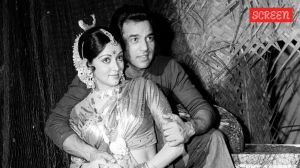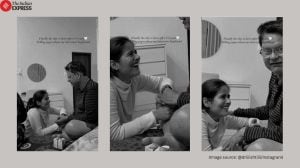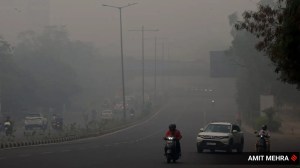Tamil Nadu Chief Minister M K Stalin on Wednesday moved a resolution in the state Assembly seeking to bring Dalit Christians under the ambit of reservation for Scheduled Castes (SC), arguing that this would enable the community to “avail the benefits of social justice in all aspects”.
The resolution, passed by the Assembly, stated that Dalits who converted to Christianity continue to face untouchability and caste atrocities. Citing similar demands raised by the ruling DMK in the past, the resolution stated that Dalit Christians should also benefit from reservation like Buddhists and Sikhs.

This move by the state government came weeks after Stalin organised a conference under the banner of the All India Social Justice Forum to bring together over a dozen Opposition parties. It saw the DMK make a pitch for the Tamil Nadu CM to play a bigger role in national politics, using the social justice plank. At the time, a DMK leader said, “Stalin’s influence is not only limited to Tamil Nadu and Kerala but extends across states. We hope to make him an instrumental figure in the Indian political landscape.”
On Wednesday, moving the resolution, Stalin said, “It is an issue to be approached with empathy.” He argued that when Dalits continue to be Dalits even after conversion, providing them with reservation is significant as it helps them get access to education and job opportunities. “Denying reservation to Dalits just because they embraced another faith of their choice, is not justifiable,” the CM said.
“People have the right to embrace a faith or religion as per their choice. But the change of faith doesn’t change their caste tag… The idea of social justice is all about using the same caste hierarchy that discriminates against Dalits to uplift them. Following this social justice system in the true spirit is a significant aspect of the Dravidian movement,” Stalin said.
“This august House urges the Government of India to make necessary amendments to the Constitution to extend statutory protection, rights, and concessions, including reservation as provided to the people belonging to Scheduled Castes under the Indian Constitution, also to the Scheduled Castes who have converted to Christianity, so as to enable them to avail the benefits of social justice in all aspects,” he said in his speech.
Citing amendments in the past that ensured reservation for Dalits who converted to Sikh and Buddhist religions, the resolution demanded a similar inclusion for Dalit Christians, too.
The late M Karunanidhi, former chief minister, had raised the same demand and written to the Union government when he was in power in 1996, 2006, 2010, and 2011, the resolution noted.
Story continues below this ad
As the then CM, Karunanidhi in 2010 wrote to the then Prime Minister Manmohan Singh to enact a law for according the status of Scheduled Castes to those from Scheduled Castes who had converted to Christianity. He demanded the deletion of paragraph 3 of the Constitution (Scheduled Castes) Modification Order, which stated that no person who belonged to religions other than Hinduism, Sikhism, or Buddhism would be considered a member of the Scheduled Castes.
The reservation set apart for the Scheduled Castes, in Para 3 of the 1950 Presidential Order, which was amended in 1956 and 1990 respectively to include Sikh and Buddhist religions, states, “No person who professes a religion different from the Hindu, the Sikh or Buddhist religion shall be deemed to be a member of Scheduled Caste.”
Karunanidhi’s letter had said the Tamil Nadu government “was of the view that members of the castes listed in the Schedule had suffered social and economic discrimination, irrespective of the religion professed by them.”
While attending a Christmas carnival in 2010, Karunanidhi said he was “ready to sacrifice or struggle to get things done for minorities such as Christians and Muslims”, asserting that his party was committed to fulfilling the demand of Dalit Christians to be included in the reservation system.
Story continues below this ad
The Sachar Committee (2005) had recommended reservation for Dalit Christians and Muslims, and the Justice Ranganath Mishra Commission (2007) had also recommended deletion of Para 3 of the Presidential Order.
The latest resolution from Tamil Nadu comes at a time when the Union Government is not in favour of extending reservation benefits to Dalits who have accepted Christianity and Islam. The objection comes on several grounds, including due to the scope of conversions entertained by Semitic religions unlike eastern faith systems, especially Hinduism. Politically too, the concern gains root in a fear that granting Scheduled Caste status to Dalit Christians and Muslims would encourage large-scale religious conversions.
In December 2022, the Union Government had informed the Supreme Court that it was unwilling to implement the recommendations by the Justice Ranganath Misra Commission for Religious and Linguistic Minorities, which proposed providing reservation to Dalits who converted to Christianity and Islam.
Additionally, the Centre established a panel led by former Chief Justice of India Justice K G Balakrishnan to further examine the issue and assess the viability of extending reservations to Dalit Christians and Muslims. The final outcome will be based on the panel’s conclusions and suggestions, considering the social, political, and constitutional ramifications of such an extension.
Story continues below this ad
Poverty, caste discrimination and caste violence played key roles in most of the mass conversion incidents recorded in independent India, and Tamil Nadu was witness to one of the biggest such events in the 1980s, at Meenakshipuram near Tirunelveli. There, more than 250 Dalit families embraced Islam after their right to worship was denied in local temples. The news of the mass conversion at the village came to light after three days, and it had rocked Parliament. Many Hindu groups and the BJP sent their top leaders to Meenakshipuram village. While the central government had sent an official delegation headed by a Union minister, volunteers of Hindu and Muslim organisations too thronged to this village even though the village residents stood by their decision.
Among many such incidents reported in recent times, one was in 2016 at Pazhankallimedu village near Nagapattinam, where a dozen Dalit families embraced Islam after being forcefully kept out of a village temple ritual.

































